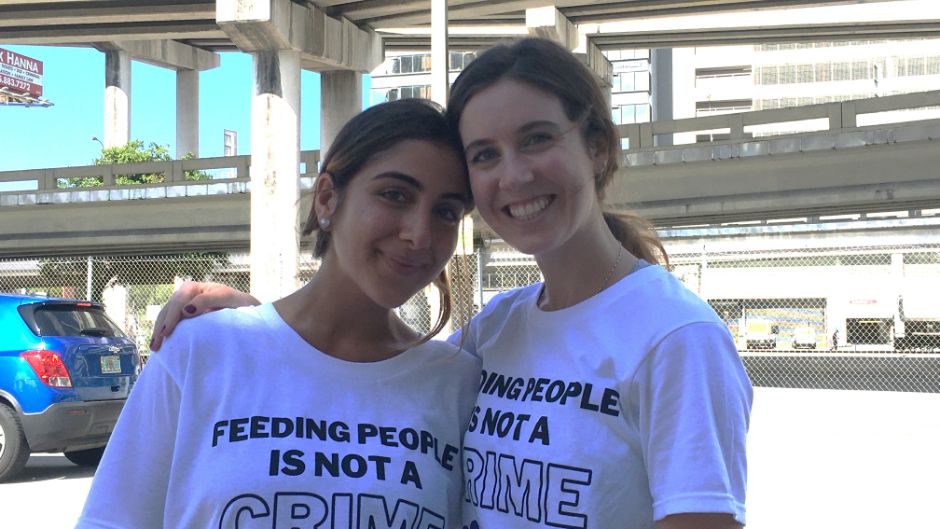The Human Rights Clinic, in collaboration with the Miami Coalition to Advance Racial Equity, filed two complaints with the United Nations Special Rapporteurs, or designated United Nations experts, on adequate housing, extreme poverty, and food to help end policies criminalizing homelessness in Miami-Dade County.
In October 2023, the City of Miami Beach made sleeping in public, a necessary act for unhoused residents, an arrestable offense. The ordinance amended Miami Beach City Code Section 70-45, empowering law enforcement to arrest people for sleeping or lying in public if they do not move to a homeless shelter. However, the City of Miami Beach prohibits homeless shelters within city limits. Since its passing, over 250 arrests have already occurred under this ordinance.
"By forcing the grim choice of arrest or exile on the unhoused community, we're blatantly trampling upon a myriad human rights. This isn't just policy; it's a direct attack to our shared values of dignity and compassion," said Juliana Greene, a legal intern with the clinic.
Additionally, in June 2020, amid the onset of the COVID-19 pandemic, the City of Miami adopted Ordinance 13907 on "large group feedings." This ordinance criminalizes food sharing, or the feeding of unhoused persons in large groups in public places without a permit and in non-designated feeding locations, of which there are only an inconveniently located handful. At the time, the clinic submitted a comment to the City of Miami commissioners analyzing the human rights violations perpetrated by the ordinance.
"The criminalization of life-sustaining activities people have no choice but to engage in to survive not only violates fundamental human rights, but is also counterproductive," said the clinic's acting director, Tamar Ezer. "Criminalization traps people in a cycle of poverty, making it harder to access housing and employment.
The State of Florida recently took these criminalization policies one step further. On March 20, 2024, Governor Ron DeSantis signed House Bill 1365, which prohibits cities and counties from allowing people to sleep or camp in public spaces and introduces a licensing requirement for public camping. This bill requires local governments to disband homeless encampments without allocating funds for removal. Moreover, failure to comply exposes municipalities to liability since private citizens can sue local governments for not enforcing the legislation.
To protect the rights of unhoused residents in Miami-Dade County, clinic students, working under the supervision of Ezer, have partnered with MCARE to engage with U.N. Special Rapporteurs with expertise in this area.
The Housing and Homelessness Team of Juliana Greene, Kasra Greiner, and Abigail Wettstein worked on a complaint and supplemental submission focused on the Miami Beach ordinance and HB 1365, while the Right to Food Team of Lily Arslanian, Kristina Bergman, and Zoe Henderson, worked on a complaint focused on the large group feedings ordinance. Many of these students, including Bergman, supported MCARE in hosting a group feeding event for local unhoused residents. "Denying food to unhoused people does not help anyone—neither does sanctioning community organizations, like MCARE or churches, for giving people food," Bergman said.
The complaints highlight how these ordinances exacerbate homelessness and violate the human rights to freedom from torture and cruel, inhuman, and degrading treatment; liberty and security of person; equality; freedom of movement; life; equal access to adequate housing and food; non-discrimination; expression; and self-determination.
Looking to international human rights law has taken on added significance in light of the Supreme Court’s decision this summer in City of Grants Pass v. Johnson, which has found it constitutional for cities to punish people for sleeping outside when they have no other alternative.
These are the first complaints the clinic has submitted to special rapporteurs, a promising additional form of advocacy for human rights practitioners. In October, some clinic members had the unique opportunity to travel to Geneva, Switzerland, for the U.S. review by the U.N. Human Rights Committee on compliance with its obligations under the International Covenant on Civil and Political Rights. During this time, team members met with staff from the office of the Special Rapporteur on the Right to Adequate Housing, who described this accessible and flexible mechanism to engage with U.N. experts, who can then communicate with the relevant government entities to try and address violations.
"We are hopeful that through the support of the U.N. Special Rapporteurs, these issues will be given greater attention, prompting reform and meaningful efforts to address the root causes of homelessness," said Wettstein.
Read more about Miami Law's clinics.

